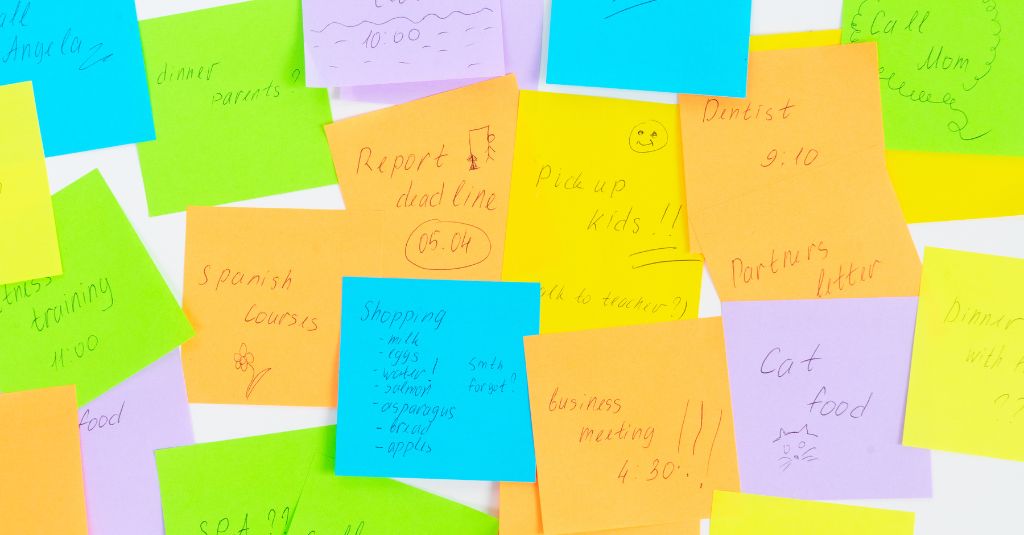We love to-do lists. We love writing them, color-coding them, and feeling accomplished when we cross things off. But let’s be real: sometimes our beloved lists turn into never-ending monsters that drain our energy and make us feel like failures. If your to-do list feels like it’s working against you instead of for you, it’s time to re-evaluate. Let’s break down why your to-do list might be burning you out and how you can reclaim your sanity.
The Never-Ending List Syndrome
Ever started with a cute little notepad and ended up needing a legal pad just to contain your ever-growing to-do list? Been there, done that. At first, a tiny notepad seems fine—until you realize it doesn’t fit everything. So you upgrade. And then upgrade again. Before you know it, you’re rewriting the same unfinished tasks every morning, feeling like you’re sprinting on a treadmill that never stops.
Here’s the problem: most of what’s on your list isn’t urgent. A lot of it doesn’t even need to be there at all. If your list is just a brain dump of every random thing you might do one day, congratulations—you’ve built yourself a guilt trap.
Instead of listing everything under the sun, categorize tasks based on priority and energy level. Not everything is an emergency. Some things are just nice-to-haves, and some should be deleted entirely (yes, really).
Decision Fatigue is Real (And It’s Stealing Your Sanity)
Every item on your list requires a decision. When should I do this? How important is it? Do I need coffee first? By noon, your brain is exhausted just from deciding what to do next.
This is where decision fatigue kicks in. Your brain, like your phone battery, has a limited charge each day. The more decisions you make, the faster you drain your mental energy. If your list has 27 tasks, you’re forcing yourself to make 27 micro-decisions before you even get started. No wonder you feel paralyzed.
Solution? Pre-sort your tasks. Assign them categories like “High Focus,” “Low Energy,” or “No Brain Required.” When you sit down to work, you can match your task to your energy level instead of playing mental ping-pong about what to do first.
Task Paralysis: When Everything Feels Urgent (But Nothing Gets Done)
If your list makes you freeze up like a deer in headlights, it’s because everything looks equally important. And when everything is important, nothing is.
Task paralysis happens when your brain short-circuits trying to prioritize. Should you answer emails first or finish that project? What about the five other things marked “ASAP”? Your brain panics, so you do the most logical thing: scroll social media and pretend it’ll sort itself out.
Break the cycle. Pick a Top Three each day. If you can only get three things done, what would make the biggest impact? Start there. You’ll be amazed at how much more productive (and sane) you feel.
The All-or-Nothing Trap
Let’s talk about perfectionism. If you believe that unless you finish everything on your list, you’ve failed, congrats! You’ve set yourself up for permanent disappointment.
Neurodivergent brains especially love this trap. You tell yourself, “If I can’t finish everything, why even start?” So you don’t start, and then you feel guilty about it. Rinse and repeat.
Give yourself permission to do less. Some days, you’ll knock out 20 tasks; other days, you’ll struggle to complete one. That’s normal. Instead of measuring productivity by quantity, measure it by impact. Did you complete a task that moved the needle? Great. Call it a win.
Aligning Your Energy Instead of Fighting It
You can’t force yourself to be in peak productivity mode 24/7. Some tasks require deep focus; others are mindless. If you’re trying to write a report when your brain is fried, it’s going to take five times longer than if you did it when you were fresh.
Instead of forcing yourself into a productivity mold, work with your energy levels. Low-energy moment? Do admin tasks. Need a boost? Put on some music or take a walk. Some people need to move, some need a change of scenery, and some just need a nap. (Yes, naps count as productivity.)
Prioritize based on energy, not just deadlines. It’s a game-changer.
If your to-do list makes you feel like a failure, the problem isn’t you—it’s the list. Ditch the endless guilt-ridden scroll of unfinished tasks. Prioritize based on energy, focus on what truly matters, and give yourself permission to do less.
Your to-do list should be a tool, not a torture device. Now go forth and conquer—strategically, of course.


